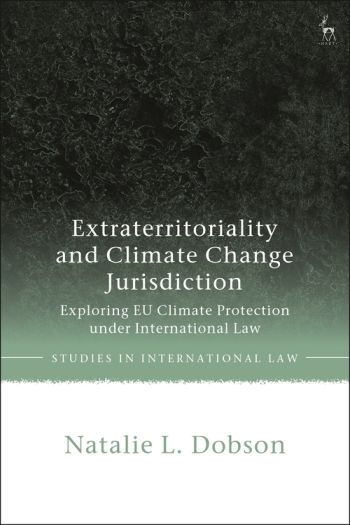
This book builds on the scholarship of the law of state jurisdiction, engaging with fundamental questions about states' legislative competence, to respond to climate change. Considering general theory, the author advocates for a systemic analytical framework for the contested issue of 'extraterritoriality' in international law.
Exploring the crystallisation of 'climate change jurisdiction', the book provides a comprehensive exploration of the jurisdictional bases and limitations for unilateral climate protection measures. In doing so, cross-cutting issues of world trade law, international civil aviation law, the law of the sea, and importantly, the customary international law of state jurisdiction are considered.
Amidst the myriad of developing norms, a novel 'considerate design' tool is introduced to assist policymakers in finding a better balance between regulatory autonomy, development needs and the protection of common concerns.